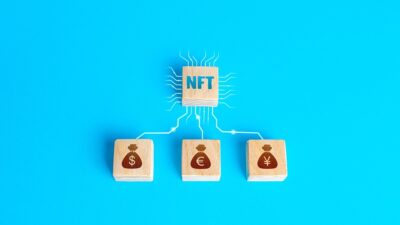As the world continues to embrace cryptocurrency, understanding how to manage and secure your digital assets has never been more crucial. Bitcoin, the pioneering cryptocurrency, allows for decentralized transactions but requires users to protect their holdings responsibly. This beginner’s guide to Bitcoin wallets will help you navigate the landscape of digital wallets, emphasizing security measures to safeguard your investments.
What is a Bitcoin Wallet?
A Bitcoin wallet is a digital tool that enables you to store, send, and receive Bitcoin (BTC). Unlike a physical wallet, a Bitcoin wallet doesn’t store the coins themselves but the cryptographic keys that allow you to interact with the Bitcoin network. These keys come in two forms:
- Public Key: Similar to a bank account number, it’s used to receive Bitcoin.
- Private Key: Like a password, it allows you to spend bitcoin. Protecting your private key is crucial, as anyone who has access can control your funds.
Types of Bitcoin Wallets
Understanding the different types of Bitcoin wallets is essential for choosing the right one for your needs. Below are the most common types:
1. Hot Wallets
Hot wallets are connected to the internet and are typically easy to use, making them ideal for everyday transactions.
-
Web Wallets: Accessible through browsers, these wallets allow quick transactions. However, they’re at higher risk of hacks, as your private keys are stored online.
-
Mobile Wallets: These are apps you can download on your smartphone. They offer convenience for on-the-go transactions but also come with security risks.
- Desktop Wallets: Installed on your computer, desktop wallets provide more security than web and mobile wallets, but are still vulnerable to malware.
2. Cold Wallets
Cold wallets are offline solutions mainly used for long-term storage of Bitcoin.
-
Hardware Wallets: These are physical devices, similar to USB drives, that store your private keys offline. They offer a high level of security and are ideal for long-term holders.
- Paper Wallets: A paper wallet is a physical printout of your private and public keys. While it provides excellent security from online threats, it can be easily lost or damaged.
Best Practices for Securing Your Bitcoin Wallet
Once you’ve chosen a wallet, follow these best practices to ensure your digital assets are secure:
1. Enable Two-Factor Authentication (2FA)
For hot wallets, always enable 2FA. This adds an additional layer of security by requiring a second form of verification, typically a code sent to your mobile device, to access your wallet.
2. Use Strong, Unique Passwords
A strong password is your first line of defense. Use a combination of letters, numbers, and special characters and avoid using the same password across multiple platforms.
3. Backup Your Wallet
Regularly back up your wallet data and keep the backup in a secure location. Many wallets offer a recovery phrase (seed phrase) that can help you restore your wallet if lost.
4. Keep Your Private Keys Confidential
Never share your private keys with anyone. If someone gains access to your keys, they can transfer your Bitcoin without your consent.
5. Be Wary of Phishing Attacks
Always verify website URLs and avoid clicking on suspicious links. Scammers often use phishing techniques to trick users into revealing their private keys or login details.
6. Use Multiple Wallets
Consider diversifying storage by using different wallets for different purposes. For example, use a hot wallet for daily transactions and a cold wallet for long-term storage.
Conclusion
Securing your Bitcoin wallet is crucial to protecting your digital assets in a landscape that can be rife with risks. By understanding the types of wallets available and implementing best security practices, you can enjoy the benefits of cryptocurrency while safeguarding your investments. Remember, in the world of Bitcoin, the responsibility of securing your funds lies with you. Take it seriously and stay informed to navigate this exciting financial frontier safely.


